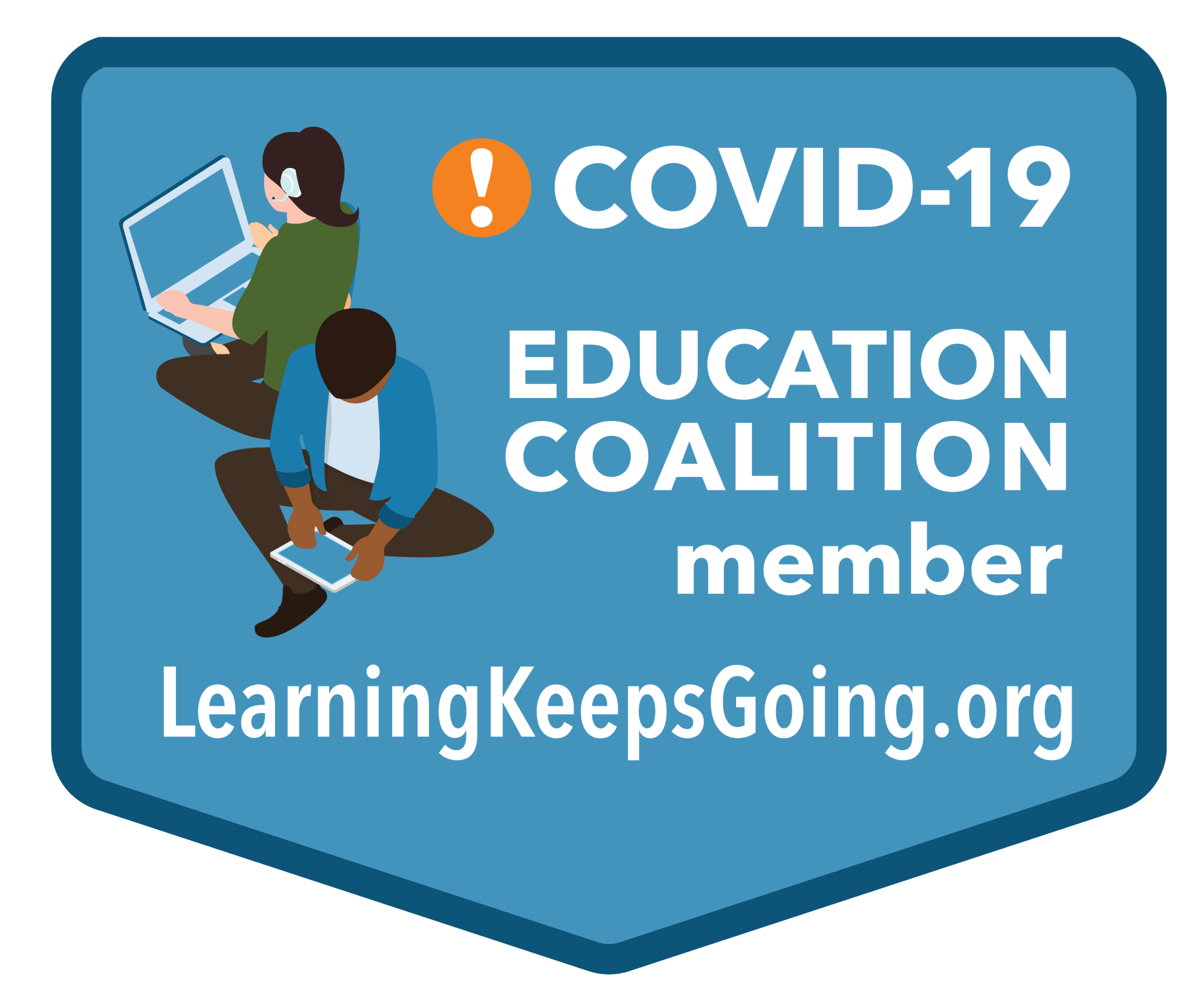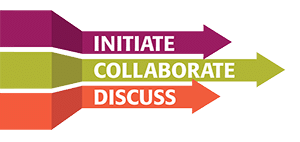03 Aug2020
By Jacqueline Rodriguez

AACTE wants to celebrate your successful strategies to diversify the profession and professionally develop your faculty and staff. We plan to share members’ strategies in a handbook focused on diversity, equity, and inclusion. This handbook will be distributed to congressional leaders and their staff during Washington Week 2020. The handbook will also be located on the AACTE website for our members to share their successes with one another.
Now that you’ve read about the Handbook, you’re likely planning your submission. We want to support you every step of the way. Below are a few tips for a successful submission to the DEI Handbook.
03 Aug2020
By Jane E. West
 Senate Republicans Reveal Proposal for Next COVID Relief Package—a Nonstarter for Democrats
Senate Republicans Reveal Proposal for Next COVID Relief Package—a Nonstarter for Democrats
We ended the week with the chasm between Democrats and Republicans looming as the clock ticks toward recess and campaigning, not to mention expiring unemployment benefits, expired eviction prohibitions and schools and higher education struggling with reopening plans. Leader McConnell revealed the HEALS Act—the Senate Republican response to the House Democratic HEROES Act—as the opener for negotiations on the next COVID relief package. A third proposal, CCERA, was put forward by Senate Democrats. A comparison of education spending in the three bills reveals the following:
03 Aug2020
By Katrina Norfleet

As part of a three-part Answering the Call to Action: Culturally Affirming Webinar Series, member institution Howard University College of Education will present its third session: “How Educators can use their Sphere of Influence to Decolonize the Classroom” on Wednesday, August 5, 2:00 – 3:30 p.m.
In addition to an overview on decolonization, the webinar offers three breakout sessions, which registrants will select in advance:
- Break Out Session 1: Anti-racist Education Through People’s History (A mini-lesson)
Deborah Menkart, Teaching for Change
- Break Out Session 2: Conducting Equity Audits
Karmen Rouland, MAEC
- Break Out Session 3: Building a coalition through Black Lives Matter Week of Action in Schools
Denisha Jones, Sarah Lawrence College
The Answering the Call to Action series also included Session 1: “Using Your Leadership in Being the Change That You Want to See,” designed for Educational Leaders and session 2: “Strengthening Mental Health Outcomes by Decolonizing Practices,” designed for School Psychologists and School Counselors.
03 Aug2020
By Nathan Jones

This article by Nathan Jones, associate professor of special education at Boston University, is Part 1 of a two-part series.
Questions of health and safety of students and school personnel have dominated summer debates about how to open schools this fall. The collective focus on safety is certainly appropriate, considering concerns voiced by parents and educators. In most all cases, states have asked school districts to prepare for multiple possible scenarios, ranging from fully in-person to fully virtual. To plan well for any of these scenarios would take a tremendous amount of collective will and resources. To plan for all options simultaneously means that schools have simply not had the opportunity to wrestle with the deep teaching and learning challenges in front of them. If we were to wave a magic wand, and all schools were able to operate fully in person with no threat to students or staff this fall, schools would still face an uphill battle to address the learning losses that have been disproportionately felt by critical student sub-populations. Nowhere is this issue clearer than in the education of students with disabilities.
Although formal data are not yet available, we should anticipate that many students with disabilities have regressed considerably since the transition to distance learning. Data from NAEP assessments show that, for the past several years, students with disabilities have lagged behind their peers in reading, writing, and math. These gaps have likely widened further during distance learning, where students with disabilities have likely not received the additional instructional time they need to make progress. In a May 2020 survey conducted by Parents Together, 40% of parents of students with disabilities reported receiving no services at all since the transition to remote learning, and only 20% reported receiving the services they were entitled to.
03 Aug2020
By Ji Soo Song
 The undersigned members of the COVID-19 Education Coalition offer the following statement on the Health, Economic Assistance, Liability Protection, and Schools (HEALS) Act:
The undersigned members of the COVID-19 Education Coalition offer the following statement on the Health, Economic Assistance, Liability Protection, and Schools (HEALS) Act:
We are deeply concerned with provisions of the HEALS Act, which proposes $70 billion to support K-12 schools in navigating the fallout from the COVID-19 global pandemic, two-thirds of which is tied to the physical reopening of school buildings. With many districts unable to safely reopen at this time because of high community transmission rates, many schools stand to lose out on a substantial portion of the HEALS Act’s promised resources, which they desperately need to ensure high-quality teaching and learning continues for the 2020-2021 school year. Additionally, the $70 billion allocated to K-12 schools is far short of the funding that national experts estimate will be necessary to fully support educators, students, and families at this time, especially those from marginalized groups disproportionately impacted by COVID-19. Many of our organizations believe that K-12 schools need between $175 billion and $200 billion.
03 Aug2020
By Lynn M. Gangone
 This moment in time is anything but typical. As the beginning of the school year nears and the pandemic surges, we are left wondering, what will our classrooms look like this fall? Preparing to return to school will look different for parents, students, and educators alike. And if the Trump administration has its way, all schools and universities will be forced to reopen with in-person education.
This moment in time is anything but typical. As the beginning of the school year nears and the pandemic surges, we are left wondering, what will our classrooms look like this fall? Preparing to return to school will look different for parents, students, and educators alike. And if the Trump administration has its way, all schools and universities will be forced to reopen with in-person education.
Determined to open schools despite the surge in COVID-19 cases, President Trump threatens to withhold federal funds as a means to force schools and universities into on campus, in-person education. His statement in early July was issued when the Centers for Disease Control and Prevention (CDC) had yet to release updated guidance on how to safely reopen schools. In fact, the revised guidelines weren’t released until July 23—leaving schools only weeks to prepare for what will undoubtably be a monumental challenge.
Federal funds must not be used as leverage to force schools and universities to provide in-person classes amidst the current surge of the coronavirus. Instead, federal funds should be allocated to aid colleges and universities in their recovery from the significant, financial challenges caused by the pandemic, to equip institutions with the proper tools to reduce the spread of coronavirus on their campuses, and to provide liability protection.
31 Jul2020
By Linda Minor

Your voice is needed at the AACTE 2020 Washington Week! Convene virtually with policy leaders, education partners, and colleagues from across the country during interactive sessions addressing current issues facing the profession. With a focus on activism and advocacy, AACTE will elevate the innovative diversity, equity, and inclusion (DEI) strategies of its members. You can participate in the call for member strategies to address DEI by August 14.
This year’s schedule of events covers provocative topics you won’t want to miss!
Holmes Advanced Policy Course: September 2-3
Experienced Holmes Scholars will explore advocacy strategies and current policies that focus on diversity, equity and inclusion in education. This course is limited to 20 participants. Complete the course application to request your spot by August 14.
31 Jul2020
By Meghan Grenda
 While many educator preparation providers are transitioning to virtual instruction, it’s no surprise that some individuals may feel isolated and “out of the loop.” Connecting with colleagues can be hard enough under normal circumstances, but the coronavirus pandemic has taken it to a new level. If you are looking to network with your peers, stay up-to-date on the latest research and trends, and participate in the ongoing conversation, the AACTE Topical Action Groups (TAGs) are here to help!
While many educator preparation providers are transitioning to virtual instruction, it’s no surprise that some individuals may feel isolated and “out of the loop.” Connecting with colleagues can be hard enough under normal circumstances, but the coronavirus pandemic has taken it to a new level. If you are looking to network with your peers, stay up-to-date on the latest research and trends, and participate in the ongoing conversation, the AACTE Topical Action Groups (TAGs) are here to help!
TAGs are member-driven working groups that provide a forum in which individuals from member institutions can exchange information on issues related to education and collaborate with each other on a variety of topics.
31 Jul2020
By Jacqueline E. King, Ph.D.
 More than ever, AACTE members are focused on disrupting inequities and advancing racial justice. AACTE is offering two great new opportunities for members to engage in this work with colleagues from across the country. The AACTE Board of Directors recently created two new committee:
More than ever, AACTE members are focused on disrupting inequities and advancing racial justice. AACTE is offering two great new opportunities for members to engage in this work with colleagues from across the country. The AACTE Board of Directors recently created two new committee:
- Advisory Committee on Educator Diversity
- Holmes Program Advisory Committee
These committees will advise AACTE on how it can best help members attract and retain diverse future teachers and other educators and on AACTE’s signature program for future scholars and leaders of color, the Holmes Program.
If you are interested in serving on one of these important new committee—or if you would like to nominate a colleague—please act now! Nominations close on August 7. Learn more and submit your nomination.
31 Jul2020
By Mark Atkinson
Education leaders’ outlook for the 2020-21 academic year anticipates a widening gap in the supply of new teachers, according to a recent survey of nearly 200 responses from individuals in leadership roles at colleges of education. The survey, conducted by the American Association of Colleges for Teacher Education (AACTE) on how the coronavirus pandemic is affecting educator preparation programs, reveals that nearly half of respondents indicated that field placements (student teaching) have been discontinued for at least some of their students.
Teacher preparation is multidimensional, and clinical experience is an essential aspect in becoming a successful educator. However, due to the outbreak of COVID-19, teacher candidates’ face-to-face classroom training has come to a halt, causing them to miss out on the opportunity to hone their in-class, instructional skills before they are in front of their own students.
“Our survey examines the critical demands in teacher preparation as we continue to navigate the global health pandemic and prepare for the academic year beginning in the fall,” said Lynn M. Gangone, AACTE president and CEO. “With critical shortages already in the teacher pipeline, it is more important than ever to use technology innovation to move field placements forward.”
28 Jul2020
By Jacqueline Rodriguez

AACTE’s annual Washington Week is going virtual and we are excited to expand the advocacy campaign from a week to a month! This September will be filled with advocacy events that are sure to engage Members of Congress and their staff. Given the national climate, AACTE would like to elevate your invaluable work in the areas of diversity, equity, and inclusion in the midst of the many challenges we are all facing in 2020.
At this year’s Day on the Hill event, we will provide our Members of Congress with a “handbook” comprised of collected strategies by our members, describing their successes at their educator preparation programs (EPPs) in pursuit of diversity, equity and inclusion.
28 Jul2020
By Jacqueline Rodriguez

As a nation, we are facing racially and ethnically grounded injustices, which disproportionately impact our BIPOC students and educators. In a recent letter to Holmes students, AACTE President and CEO Lynn M. Gangone noted “that generations of citizens are molded by their educators, and so the work of fighting for racial equity begins in our member institutions—on your campuses.”
Sadly, the nation’s P-20 educators have never reflected the rich diversity of the students they serve. Gangone notes that while “the work that needs to be done to sow seeds of racial justice in our curriculum and in our teaching practices should not and cannot be solely completed by our students and faculty of color, the invaluable teaching and scholarship contributions of our diverse educators and candidates are the underpinning for system of education each student in our country deserves.
28 Jul2020
By Jane E. West
This blog post is written by AACTE consultant Jane West and is intended to provide updated information. The views expressed in this post do not necessarily reflect the views of AACTE.
COVID Relief Package Progress Stalled
The Congress is scheduled to go into recess in two weeks. The election is about 100 days away. The nation is in crisis. Yet this week brought us a back and forth between the White House and Senate Republican leadership that yielded leaks of morsels about a proposed COVID relief package followed by retractions, clarifications and proclamations by individual Republican Senators that they have not seen any proposals nor been able to weigh in. Democrats are growing antsy—with two proposals on the table—HEROES Act in the House and the Coronavirus Childcare and Education Relief Act in the Senate. they are ready to negotiate. But no one is at the table yet.
A Senate Republican leadership bill was promised this week. A sketch of a proposal was leaked with the caveat that nothing had been finalized or agreed to. With Monday and Tuesday focused on honoring Rep. John Lewis in the Capitol, the business week will be short. The promise of that August recess is looking dim. With the federal unemployment checks scheduled to end at the end of the month and 1 in 5 workers now collecting unemployment benefits, much is at stake. Educators in both higher education and K-12 are struggling to make decisions now about school openings with little clear guidance and no sure knowledge of when or if there will be additional federal support.
24 Jul2020
By Aurelia Grayson and Lauren Pescatore
Principals’ leadership is a critical factor in schools’ success, and school leader preparation programs play a key role in facilitating that success. Specific strategies and resources can support the growth of a strong pipeline of principals who are able to lead teaching and learning in today’s schools. AACTE supports the Wallace Foundation’s principal preparation work, which includes research and initiatives such as the Principal Pipeline Initiative and the University Preparation Programs. The following is a an announcement from the Wallace Foundation’s most recent research featuring three reports that examine efforts being taken in large districts across the country to shift the principal supervisor role from a focus on administration to supporting principals as instructional leaders.
The Wallace Foundation released a trio of reports examining the benefits school districts gained from changing the principal supervisor role to focus less on administrative duties and more on supporting principals in improving instruction. Teams of researchers from Vanderbilt University, the University of Utah, Mathematica, and the Council of the Great City Schools collaborated with the foundation to design and administer surveys that show how the supervisor role may be changing in large districts nationwide. The reports build on earlier research suggesting that effective supervision is part of a comprehensive principal pipeline, with aligned parts, that can lead to benefits for student achievement.
24 Jul2020
By Azaria Cunningham
 Congratulations to Breahannah Hilaire, Holmes Scholar of the Month for July 2020. Hilaire recently completed the first year of her doctoral program at the University of Central Florida (UCF), where she is pursuing her Ph.D. in counselor education and supervision.
Congratulations to Breahannah Hilaire, Holmes Scholar of the Month for July 2020. Hilaire recently completed the first year of her doctoral program at the University of Central Florida (UCF), where she is pursuing her Ph.D. in counselor education and supervision.
Prior to attending UCF, Hilaire completed her master’s degree in clinical mental health counseling at Rollins College. She is currently a Registered Mental Health Counselor Intern and holds counseling certifications in both clinical hypnosis and university and college counseling.



 Senate Republicans Reveal Proposal for Next COVID Relief Package—a Nonstarter for Democrats
Senate Republicans Reveal Proposal for Next COVID Relief Package—a Nonstarter for Democrats

 The undersigned members of the COVID-19 Education Coalition offer the following statement on the
The undersigned members of the COVID-19 Education Coalition offer the following statement on the  This moment in time is anything but typical. As the beginning of the school year nears and the pandemic surges, we are left wondering, what will our classrooms look like this fall? Preparing to return to school will look different for parents, students, and educators alike. And if the Trump administration has its way, all schools and universities will be forced to reopen with in-person education.
This moment in time is anything but typical. As the beginning of the school year nears and the pandemic surges, we are left wondering, what will our classrooms look like this fall? Preparing to return to school will look different for parents, students, and educators alike. And if the Trump administration has its way, all schools and universities will be forced to reopen with in-person education.
 While many educator preparation providers are transitioning to virtual instruction, it’s no surprise that some individuals may feel isolated and “out of the loop.” Connecting with colleagues can be hard enough under normal circumstances, but the coronavirus pandemic has taken it to a new level. If you are looking to network with your peers, stay up-to-date on the latest research and trends, and participate in the ongoing conversation, the AACTE
While many educator preparation providers are transitioning to virtual instruction, it’s no surprise that some individuals may feel isolated and “out of the loop.” Connecting with colleagues can be hard enough under normal circumstances, but the coronavirus pandemic has taken it to a new level. If you are looking to network with your peers, stay up-to-date on the latest research and trends, and participate in the ongoing conversation, the AACTE  More than ever, AACTE members are focused on disrupting inequities and advancing racial justice. AACTE is offering two great new opportunities for members to engage in this work with colleagues from across the country. The AACTE Board of Directors recently created two new committee:
More than ever, AACTE members are focused on disrupting inequities and advancing racial justice. AACTE is offering two great new opportunities for members to engage in this work with colleagues from across the country. The AACTE Board of Directors recently created two new committee:

 Congratulations to Breahannah Hilaire, Holmes Scholar of the Month for July 2020. Hilaire recently completed the first year of her doctoral program at the University of Central Florida (UCF), where she is pursuing her Ph.D. in counselor education and supervision.
Congratulations to Breahannah Hilaire, Holmes Scholar of the Month for July 2020. Hilaire recently completed the first year of her doctoral program at the University of Central Florida (UCF), where she is pursuing her Ph.D. in counselor education and supervision.